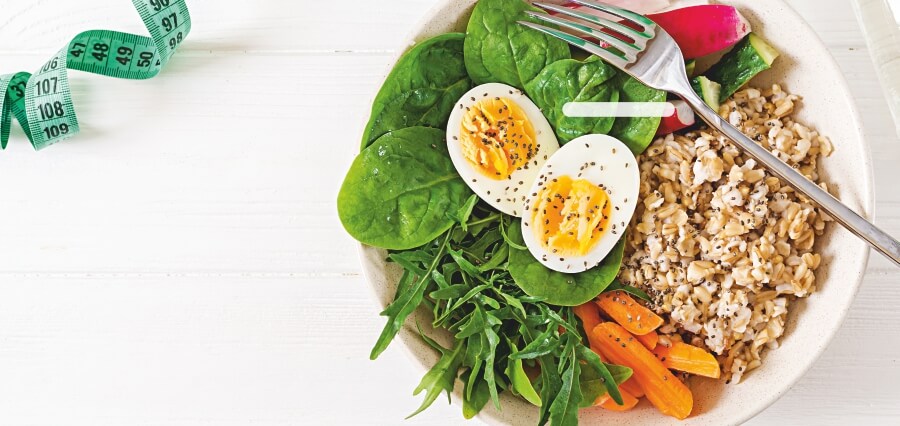Fitness – Primary Goal
Physical fitness is a key component needed for an active lifestyle for an athlete. When pursuing the final ball or making an exhilarating push to the finish line, everything rests on your strength, ability to maintain focus, expert skill set, and endurance. Being best at all times requires preparation, training, and patience. But that is not sufficient.
Without the vitals your body needs to engage in physical activity, it cannot function. You must take proper care and maintain it by consuming vitamins, and other nutrients that provide you sufficient energy to stay active.
Nutrients can help you developing endurance and keep your body healthy. An athlete’s diet is not much different than that of any person who is striving to keep himself healthy. You must offer options from all of the nutritious food groups. However, depending on the sport they play and how much time they spend exercising, athletes may need to modify their nutrition regimens.
Living Healthy
Every person has its ability and demand of calories depending upon physical activities. The amount of food people usually require depends upon factors like age, height, weight, and sports activity level. The number of calories needed by athletes is significantly higher than for the average individual. Calories can be found in a variety of food types, including proteins, lipids, and carbs.
Carbohydrates:
Because they are so important to athletic performance, carbohydrates typically garner a lot of attention in sports. It is a crucial source of the calories your body needs.
Your body can more easily process simple foods like fruits, vegetables, and dairy products that are high in carbohydrates. For athletes, simple carbohydrates are crucial since they can give them an instant energy boost.
They improve the body’s muscles and crucial molecules needed for physical activity. Many athletes favour them as a fuel source since they can give enough blood glucose and glycogen, especially during extended, high-intensity workouts.
Healthy carbs for an athlete’s diet include whole grains, such as brown rice, quinoa, oats, and starchy foods like potatoes.
Fats:
Fats are essential in the diet to maintain bodily processes like hormone metabolism and neurotransmission factor. The more efficient an athlete becomes in their respective sport, the easier it is for them to operate at a lower intensity while maintaining the same level of work or maintaining the same speed – metabolic efficiency. At a lower intensity, the fats which are stored in the muscle are used as a fuel source.
Fats serve many functions in the body like protecting the hormones, helping the body to absorb and manufacture some important nutrients, and energize the body.
This has important repercussions for athletes competing in muscular endurance sports that demand a quick surge of power to generate energy. To get enough fats into their diets, several athletes turn to ketogenic diets.
Proteins:
Proteins are a crucial component of the nutrients needed for sporting activity. They give the body an adequate supply of amino acids, which aid in muscle and tissue growth and repair. Your organs and tissues’ primary building blocks are proteins. A diet high in protein can reduce discomfort and hasten the healing process after a serious injury.
Protein, as opposed to carbohydrates or fats, effectively encourages indulgence and a sense of fullness. This is beneficial for the athletes who often fuel up their bodies for long stretches of time. Some of the high-protein diets for athletes include soybean, nuts, eggs, and lentils.
The same vitamins and proteins are required by athletes as by everyone else. Consuming a balanced, nutritionally dense diet is an efficient approach to keep healthy and fit. Ingredients rich in calcium, iron, potassium, fibre, and vitamins A, C, and E should be present.
Micro-nutrients, supplements, and hydration
Most people can usually achieve an adequate intake of vitamins, minerals, and proteins by consuming a varied and balanced diet. Athletes may make sure they are getting the necessary vitamins and minerals in their diets to improve both their overall health and athletic performance.
Moreover, athletes should stay hydrated. Given that sweat losses are a combination of fluids, and electrolytes like sodium and potassium, athletes can stay hydrated by constantly drinking water, energy drinks at times, to meet their hydration needs.
Depending on the sport they participate in, athletes have various dietary needs. It can be difficult for people who are training or competing at their absolute best to eat enough. These athletes can consult a sports nutritionist or dietician to make sure they are getting enough calories and nutrients to maintain their weight, improve their performance, and maintain a sufficient protein intake for a speedy recovery.
To ensure enough nutrition supply, their nutritionists or dieticians can offer clients a customised food plan.


